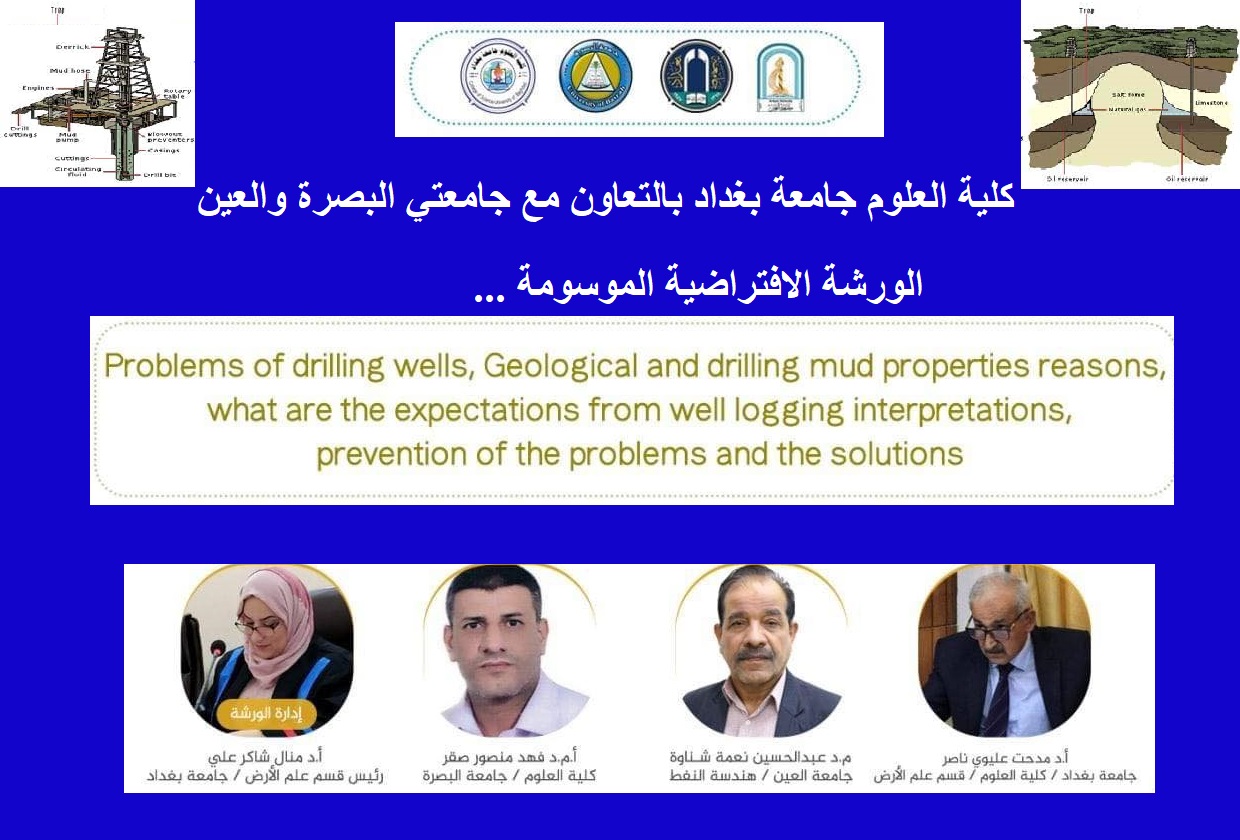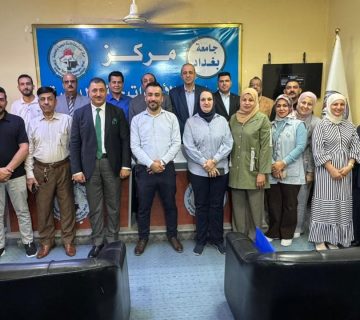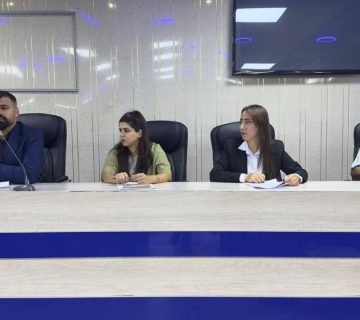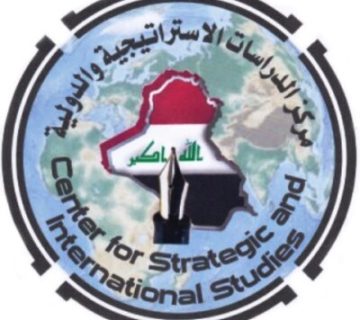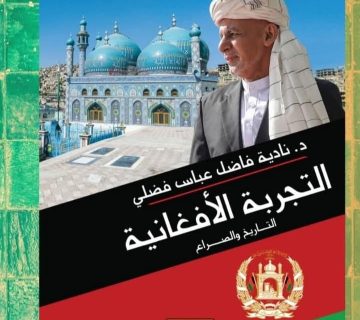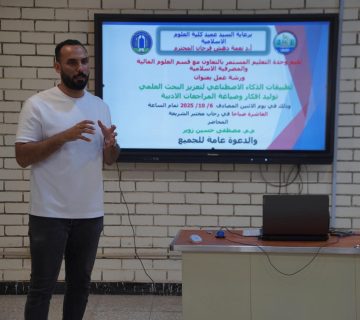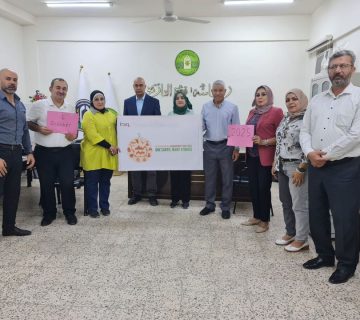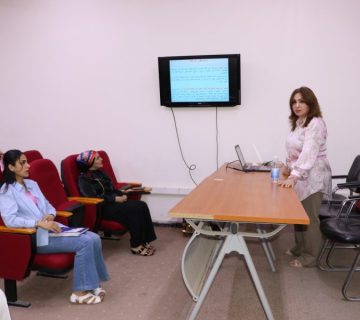The department of earth science, in cooperation with Ibn Sina unit and the continuing education unit at the college of science has organized recently a virtual workshop entitled “Problems of drilling wells: geological and drilling mud properties”, in coordination with the University of Basrah and Al-Ayen University in Dhi Qar with the participation of a number of students and researchers specializing in oil engineering and geology from Arab and international universities and representatives of oil companies.
The workshop, that was held within the framework of cooperation between various Iraqi universities and contribution of academic expertise, aimed to highlight the development of drilled wells as part of the natural processes in drilling and the final disinfection of wells and how to rehabilitate them manually or mechanically in terms of quality or quantity, with reference to all matters related to oil reservoirs, well sensors and the methods for prevention of their risks on human beings.
The workshop included lectures given by many professors and specialists in petroleum geology, where the first one was delivered by Prof. Dr. Medhat Eliwi Nasser, a professor at the department of earth science who talked about the hydrocarbon reservoirs and the mechanism adopted for maintaining the sustainability of oil reserves in Iraq. The second lecture was given by Assist. Prof. Dr. Fahad Mansoor Saqr, a professor from the college of science at the University of Basrah who talked about well sensors as tools used for the sake of evaluating and exploration of hydrocarbon reservoirs and their role in determining the limits of oil sequences, diagnosis of rocks and minerals in addition to evaluation of petrophysical specifications for oil reservoirs which play a very significant role in the drilling of oil wells and production processes. At last a lecture was delivered by Dr. Abdul Hussein Nemah Shnawa from Al-Ayen University on the hydrostatic equilibrium and its relation to geological formations and their lateral facies changes, as well as environmental pollution and health hazards that the workers in oil industry exposed to.


